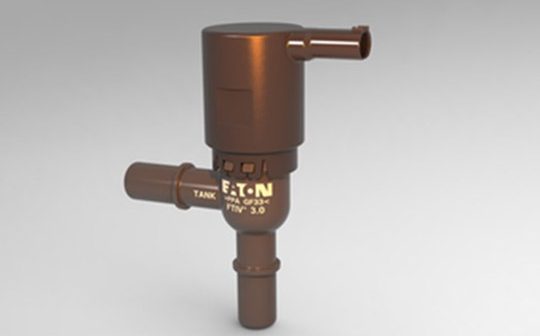
Eaton has announced it has launched its next-generation fuel tank isolation valve (FTIV) for hybrid vehicles.
The new FTIV is 27% lighter, 39% smaller and contains 24% fewer components than its predecessor.
The gas engine in a hybrid vehicle does not operate continuously. As a result, hybrid fuel systems require special measures to address evaporative emissions that accumulate when the gas engine is not in operation.
“Pressure builds up in the gas tank when the vehicle is in electric mode, so that pressure has to be released. Also, when refueling you want to make sure the tank is depressurized to avoid spit back,” said Christy Roadknight, business unit director, Eaton’s Mobility Group. “Modern hybrids spend more time in electric mode so FTIV is now even more important.”
Eaton’s next generation FTIV comes at a time when hybrids are becoming a popular alternative to fully electric vehicles.
As new hybrids come into the market, Eaton’s isolation valve can reduce packing challenges with its reduced dimensions.
Eaton engineers reduced the size of the FTIV by 39% by improving the magnetic force produced by the isolation valve while at the same time reducing the amount of copper.
Additionally, the new FTIV is designed to be easier to mount in a variety of challenging tank configurations within the vehicle.
“We optimized the geometry on existing components and ensured the new and improved design maintained the reliability of our previous offering,” Roadknight said. “This market is expanding, and we have a 13-year history in this space.”
Eaton has agreements to supply its next-generation FTIV to two global automotive customers and has drawn interest from other manufacturers.
Image: Eaton’s new fuel tank isolation valve is designed to be easier to mount in a variety of challenging tank configurations within the vehicle. (Photo: Business Wire).






